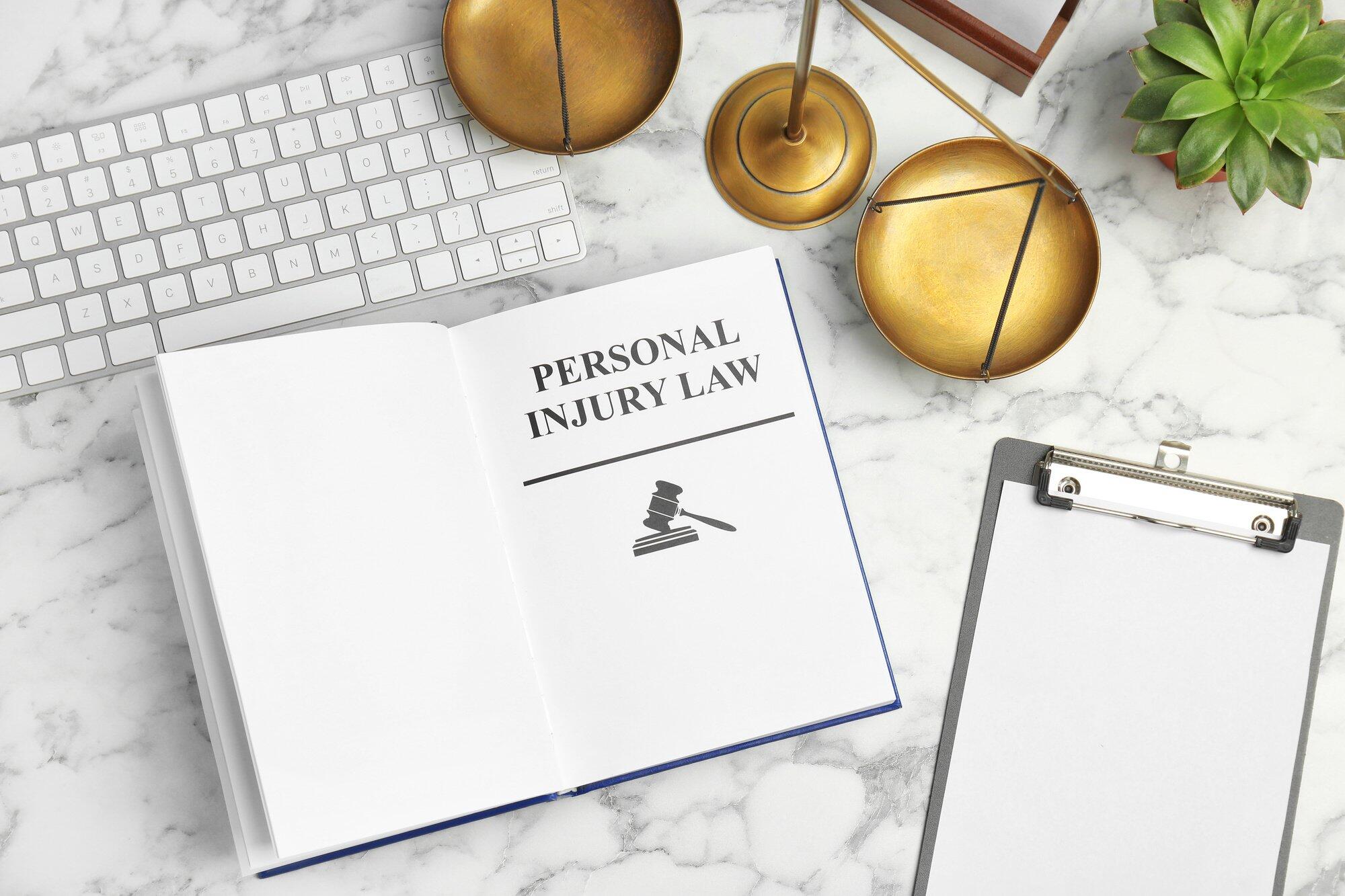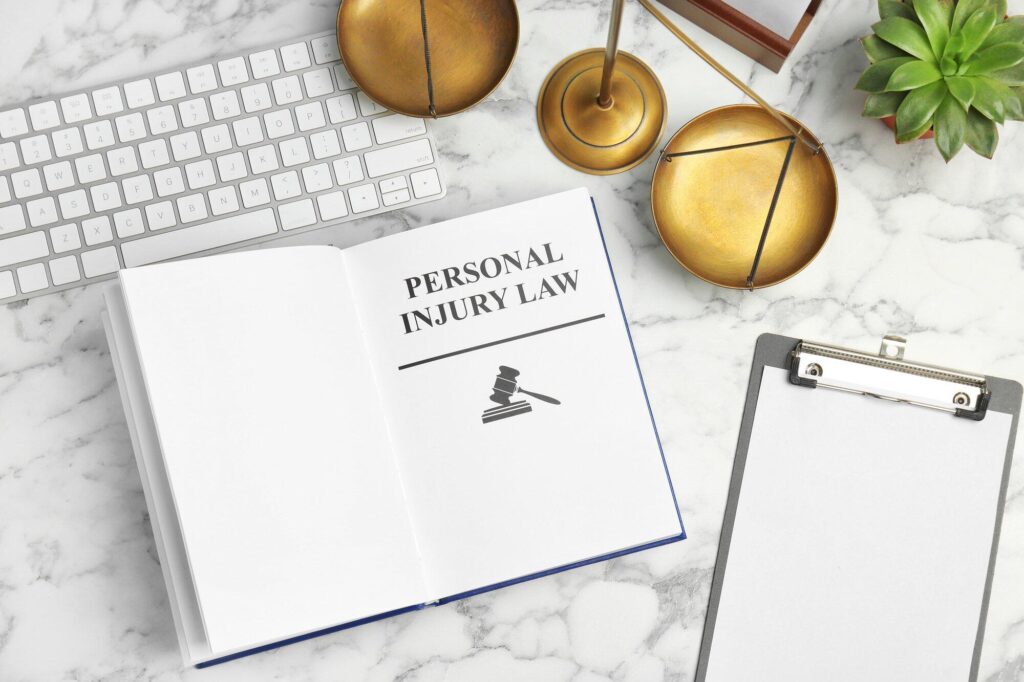How long does a personal injury case take to settle? Did you recently suffer a personal injury? Defined as hurt caused by another person, business, or entity, common examples include slips and falls, automobile collisions, and other acts of negligence.
In the aftermath, you might be experiencing a range of emotions in addition to physical ailments. As you navigate your next steps, you may wonder what your course of action should be. Should you file a claim to hold the responsible party accountable and seek compensation for your pain and suffering?
If you decide to move forward, the timeline matters. How long does a personal injury case take to settle or resolve? Below is a look at the general process and what you can expect.
Step 1: Getting Treatment
After an accident, the first thing you should do is seek medical care. This is important even if you do not feel any kind of physical pain immediately following the event. Some injuries, especially soft-tissue ones like sprains, can take a few days to develop fully.
In addition, visiting a physician immediately establishes a record and timeline of your injury, linking it to the accident. As you attend follow-up appointments and requisite therapies, you can show the extent of your suffering and the progression of your healing.
Step 2: Hiring a Lawyer
Once you have sought medical help for your injury, your next step is to hire a personal injury lawyer. That attorney will be well-versed in every aspect of your case, including the laws applying specifically to the state of Virginia, such as the statute of limitations.
In the Old Dominion State, in most cases, you have two years from the date of the accident to file a personal injury lawsuit. If you wait too long, you could disqualify yourself from seeking the compensation you deserve.
Though you might think you can represent yourself moving forward, keep in mind this can be a costly, confusing, and time-consuming process. You need to focus on resting and getting better, not trying to decipher dense legal jargon and tomes of paperwork.
One of the most important benefits of hiring a lawyer is having someone to speak to the insurance company for you. While you might have already been approached by an adjuster, it is important not to accept a settlement until you have secured legal counsel. Insurers might be sympathetic to your situation, but they will usually try to offer as little compensation as possible, hoping the injured parties will accept without filing a lawsuit.
Your lawyer will know an unreasonably low offer when he or she sees one and can advise you accordingly. Your lawyer will also be by your side through every stage of the claims process, making sure you complete and file everything on time.
Step 3: Reviewing Your Injury
Before you pursue a personal injury claim, it is important to consider the incident that caused your injury. Law firms specializing in personal injury are experienced in covering a range of accident types, including:
- Motor vehicle accidents
- Bicycle accidents
- Motorcycle accidents
- Truck accidents
- Wrongful deaths
- Premises liability
- Pedestrian accidents
The steps you will follow depend on the event that occurred and who was responsible.
For instance, if you were injured in a motor vehicle accident, then your lawyer will pursue a claim against the at-fault driver. If you slipped and fell at a commercial establishment (such as a retail store), then the claim would be against the property owner.
If you are able to do so, it is helpful to gather as much evidence as possible while you are still at the scene of the accident. This might include taking pictures or videos or taking notes on your surroundings. Specifically, try to remember the events that happened right before you were injured, which can help your lawyer determine what (and who) caused the accident.
In addition, it is also helpful to speak with any eyewitnesses who were at the scene. Get their contact information, including an email and home address, so your lawyer can reach out to them later.
Step 4: Conducting the Investigation
Once you have hired a lawyer and the lawyer understands the full extent of your injury, he or she will get to work investigating it. This includes creating a detailed timeline of all the events leading up to your accident. To do so, the attorney might complete several steps, including:
- Visiting the accident scene
- Reviewing your photos, videos, and personal notes
- Reviewing your medical records
- Obtaining the accident report from the local police
- Interviewing eyewitnesses
Piece by piece, the attorney will put together a full account of what happened and who was at fault. The attorney will also research the law as it applies to your case to make sure you are receiving the full amount for the damages you sustained.
In addition to obvious injuries, you can seek compensation for a variety of ailments related to your accident. These can include, but are not limited to:
- Property damage
- Lost wages
- Reduced earning potential
- Medical bills
- Pain and suffering
- Emotional distress
- Scarring or disfigurement
- Loss of enjoyment
If the case involves a wrongful death, then the deceased’s statutory beneficiaries can also seek compensation to cover burial costs and other related expenses. In all, a number of factors determine the value of your personal injury case. They include:
- The severity of your injuries
- Whether you can establish liability or not
- The amount of insurance the at-fault party carries
An experienced personal injury attorney can help you get the full compensation you deserve based on your specific case. While the attorney will work as efficiently as possible, keep in mind the investigative stage can take a long time. If there were multiple parties involved in your accident, you can expect it to take longer.
Step 5: Submitting the Demand Letter
Once your lawyer investigates your case, the lawyer will contact the insurance company of the at-fault party, requesting a settlement to cover your physical pain, emotional distress, medical bills, lost wages, etc. In many cases, personal injury claims are resolved this way, out of court.
To initiate this process, your lawyer will send what is known as a demand letter to the insurer. This officially begins the negotiation stage. You can expect to wait a few weeks to multiple months to receive a response.
Many times, the insurance company will respond, but it might not be to your liking. These initial offers are often too low. Your lawyer will get in touch with the insurer and go over the details of your claim, providing evidence as required while asking for more money.
Step 6: Filing a Lawsuit
You may feel relief when the at-fault party’s insurance company replies to your lawyer’s demand letter with an offer. However, there is a chance the insurance company never offers fair compensation, or the insurer could deny your claim altogether.
When this is the case, your lawyer might encourage you to pursue a lawsuit. If your lawyer deems this step necessary, this could significantly extend the timeline of your personal injury case.
Step 7: Starting the Discovery Process
Once your lawyer files the personal injury lawsuit, the next stage is called formal discovery. During this time, both parties will exchange information related to the case.
This process can take a while to complete, but it is important to get as much data as possible. This helps your lawyer understand the full extent of the case so he or she can fight to make sure you get the compensation you deserve.
Step 8: Negotiations and Trial
Throughout the lawsuit, negotiations will continue. During this time, your lawyer will be communicating with the at-fault party’s attorney and/or the at-fault party’s insurance company to see if a settlement can be reached. Most of the time, the case will ultimately settle.
However, there are a number of personal injury cases that do make it all the way to court. If this applies to your case, you will need a reliable and experienced lawyer by your side. While you can technically represent yourself, this leaves you vulnerable, especially if you are unfamiliar with how the trial process works.
Your lawyer will represent you through every stage, helping to present a strong case to the judge and/or jury. While you might only be in the actual courtroom for a few days, be prepared to wait. It can take up to a year or longer for your case to be completely finalized.
How Long Does a Personal Injury Case Take to Settle?
Now that you know the basic timeline, are you still wondering, “How long does a personal injury case take to settle?” There are multiple stages to any personal injury case, but not all will go to trial. If your lawyer resolves your case out of court, then your wait time will be shorter, and you can receive your compensation faster. This outcome is much more likely to occur if you work alongside a seasoned personal injury attorney.
At Preston, Wilson & Crandley, PLC, we are well-versed in Virginia personal injury law. To learn more about our services, contact us today!
# How long does a personal injury case take to settle


